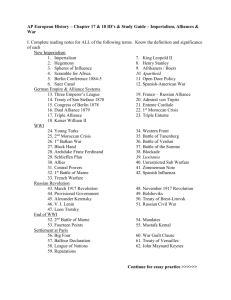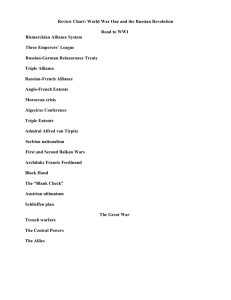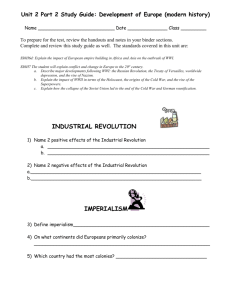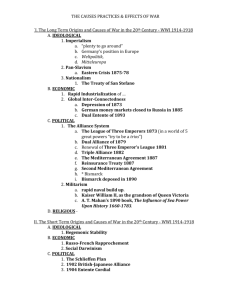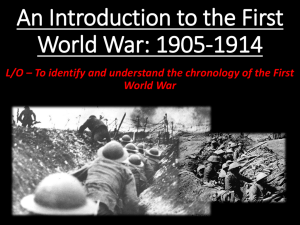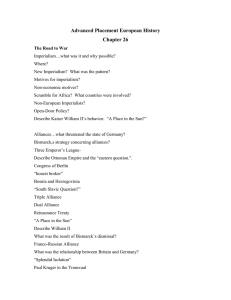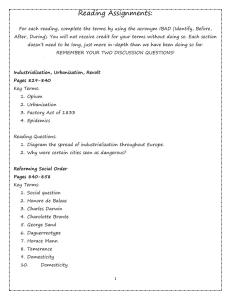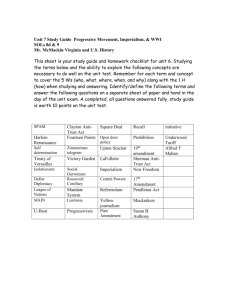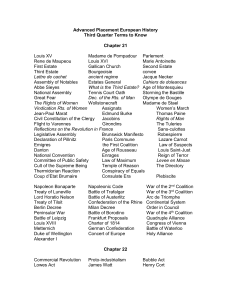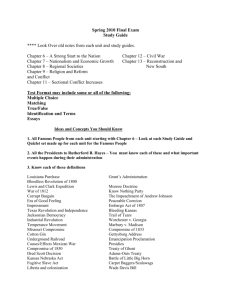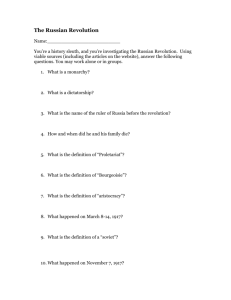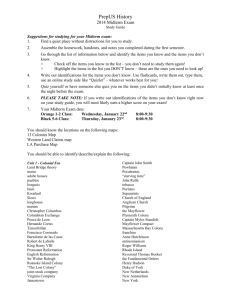AP European History – Chapter 25 Study Guide – Imperialism
advertisement
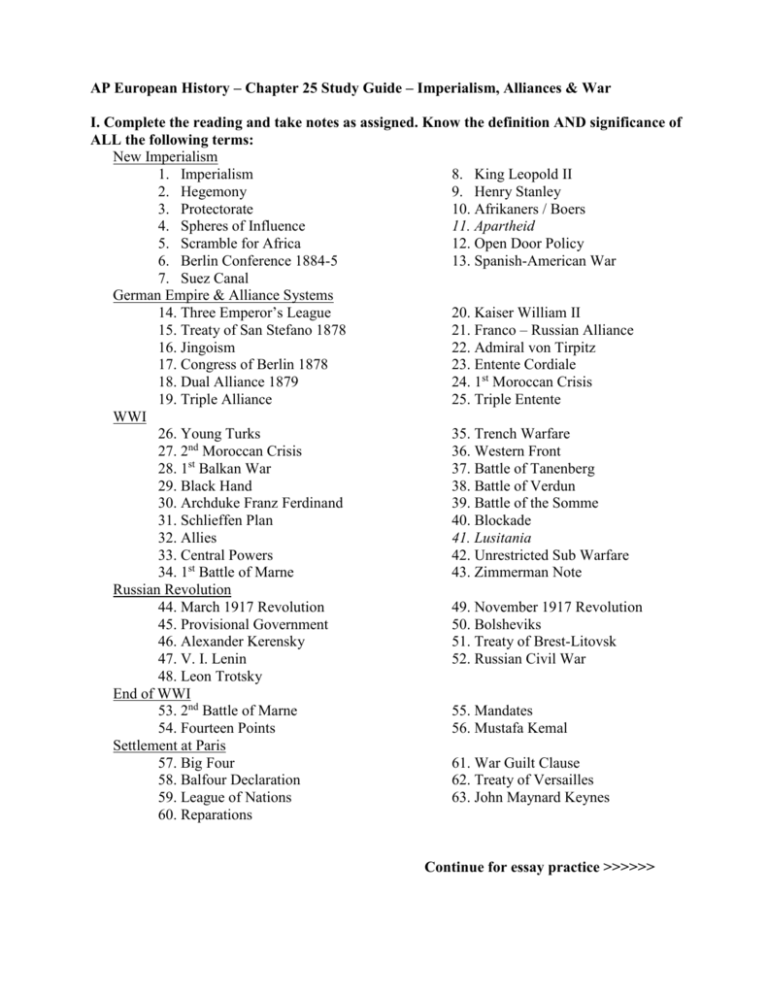
AP European History – Chapter 25 Study Guide – Imperialism, Alliances & War I. Complete the reading and take notes as assigned. Know the definition AND significance of ALL the following terms: New Imperialism 1. Imperialism 8. King Leopold II 2. Hegemony 9. Henry Stanley 3. Protectorate 10. Afrikaners / Boers 4. Spheres of Influence 11. Apartheid 5. Scramble for Africa 12. Open Door Policy 6. Berlin Conference 1884-5 13. Spanish-American War 7. Suez Canal German Empire & Alliance Systems 14. Three Emperor’s League 20. Kaiser William II 15. Treaty of San Stefano 1878 21. Franco – Russian Alliance 16. Jingoism 22. Admiral von Tirpitz 17. Congress of Berlin 1878 23. Entente Cordiale 18. Dual Alliance 1879 24. 1st Moroccan Crisis 19. Triple Alliance 25. Triple Entente WWI 26. Young Turks 35. Trench Warfare 27. 2nd Moroccan Crisis 36. Western Front st 28. 1 Balkan War 37. Battle of Tanenberg 29. Black Hand 38. Battle of Verdun 30. Archduke Franz Ferdinand 39. Battle of the Somme 31. Schlieffen Plan 40. Blockade 32. Allies 41. Lusitania 33. Central Powers 42. Unrestricted Sub Warfare st 34. 1 Battle of Marne 43. Zimmerman Note Russian Revolution 44. March 1917 Revolution 49. November 1917 Revolution 45. Provisional Government 50. Bolsheviks 46. Alexander Kerensky 51. Treaty of Brest-Litovsk 47. V. I. Lenin 52. Russian Civil War 48. Leon Trotsky End of WWI 53. 2nd Battle of Marne 55. Mandates 54. Fourteen Points 56. Mustafa Kemal Settlement at Paris 57. Big Four 61. War Guilt Clause 58. Balfour Declaration 62. Treaty of Versailles 59. League of Nations 63. John Maynard Keynes 60. Reparations Continue for essay practice >>>>>> Before you start “Essay Practice” read pgs. 870 – 875 & take notes on the changing views of “imperialism” and “empire.” It would be wise to understand the flow, the sequence / rise and fall of the various empires you have studied, as well as how each has impacted the globe. II. Be prepared to answer ANY of the following in FRQ Quick or regular full essay format. NOTE: “FRQ Quicks” REQUIRE copying the prompt down verbatim, showing evidence of working the prompt, a full intro ¶ with appropriate thesis underlined, bullet point evidence for each body ¶ (including appropriate relevant vocabulary) and a concluding statement that does not merely restate the thesis verbatim: 1. Describe the reasons why European nations imperialized Africa and Asia and how this was accomplished. 2. Evaluate Bismarck’s leadership skills in maneuvering Germany into a prominent role in European affairs during the late 1800s 3. In what ways can the Great War be considered a truly “world” war? 4. What factors led to the success of the Russian Revolution? 5. How did WW1 ultimately affect Europe and the rest of the world? Evaluate the terms of the Treaty of Versailles. Was it a success or failure?
